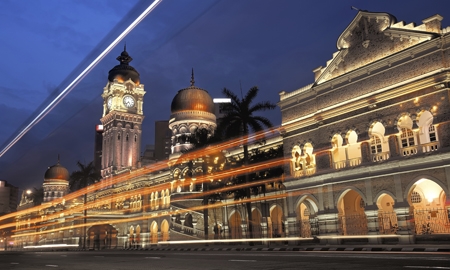Ask Noharuddin Nordin, CEO of the Malaysian Investment Development Authority (MIDA), why investors are showing increasing confidence in Malaysia and he points to the underlying strength of the economy.
“Malaysia’s economic fundamentals remain strong,” he says. “Despite uncertainties in the global economy, Malaysia’s economic performance registered 5.1% growth in 2011.”
Add to that political stability, the government’s economic reform agenda, and government initiatives through MIDA to create a conducive business environment and it’s easy to see why Malaysia is succeeding in gaining the quality investments in the manufacturing, services and primary sectors it needs to drive its Economic Transformation Program (ETP), despite a challenging international environment.
Jakarta-based MIDA has offices across the globe and is spearheading efforts to target and attract investment into new growth areas, emerging technologies, high value-added industries, high technology and capital intensive industries and R&D activities.
Its efforts are paying off – Malaysia is being seen as a better place to do business and is moving up the international competitiveness rankings.
UNCTAD ranks Malaysia one of the top host economies for FDI in 2011- 2013. The World Bank’s Ease of Doing Business Report for 2012 raises Malaysia up five places to 18th position – ahead of Germany, Japan, Switzerland and Belgium. In the most recent Global Competitiveness Report issued by World Economic forum in Geneva, the country is positioned five places higher in 21st position, for “improvements across the board”.
Mustapa Mohamed, the Minister of International Trade and Industry, says a stable macroeconomic environment, political stability and government policies are the secret of Malaysia’s success.
“We are an open economy, we are reforming and transforming,” he says. “We’ve been opening up – for example, in manufacturing, 100 % foreign ownership. Services have been liberalizing. We are investor-friendly. We engage a lot with the private sector, there is a lot of communication. The fact that we have so many companies from around the world speaks for itself.”
Malaysia attracted 32.9 billion ringgit (around $10.7 billion) in foreign direct investments last year, the highest ever recorded, and an increase of 12.3%. The largest share—just over half—went to the manufacturing sector, with most of the remainder distributed between the services sector, and mining and quarrying.
Japan was by some distance the leading investor, with investments totaling 10.1 billion ringgit, followed by South Korea, the United States, Singapore, and Saudi Arabia.
However, domestic inves-tors were even more active than their foreign counterparts. Domestic investment in 2011 exceeded FDI, accounting for 82.3 billion ringgit or 55.4% of the total approved investments. Under the ETP, domestic investment is targeted to account for 73% of total investments by 2020.
Total investments ap-proved in the manufacturing, services, and primary sectors surged by 40.7% from 105.6 billion ringgit in 2010 to reach 148.6 billion ringgit in 2011, according to government statistics.
“This is a testament to investors’ confidence in the local business environment,” says Mustapa Mohamed. “This significant achievement also indicates that Malaysia is on track to attain the investment targets set under the Economic Transformation Program by 2020.”
The impact of the new investment projects is being seen in the creation of new jobs, development of new growth areas in the solar, aerospace, automotive, and biochemical industries, and Malaysia’s position as trading nation is being strengthened by the high percentage of export-oriented projects being approved.

0 COMMENTS